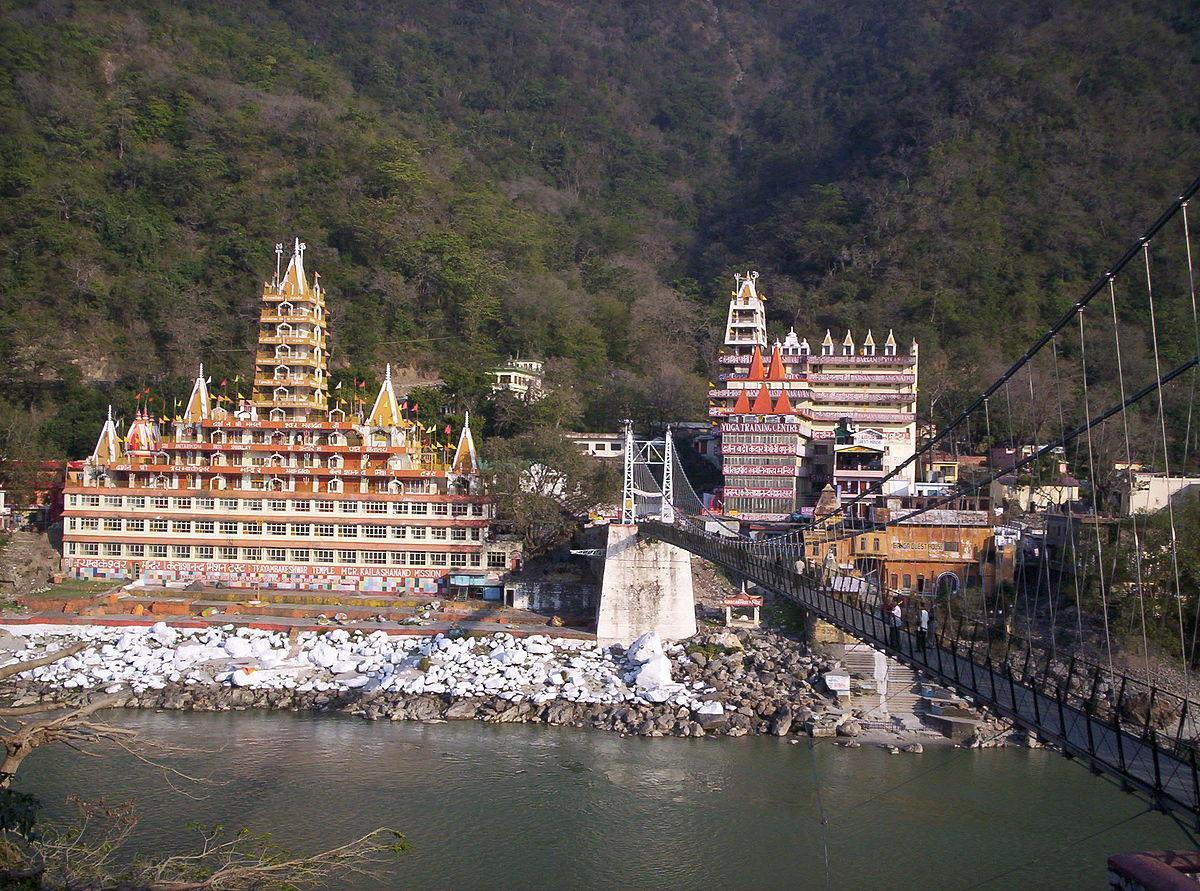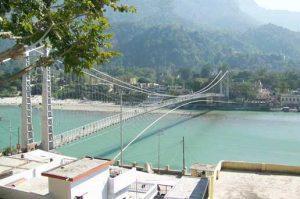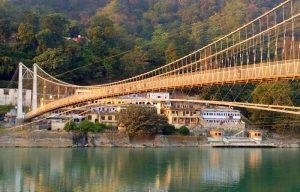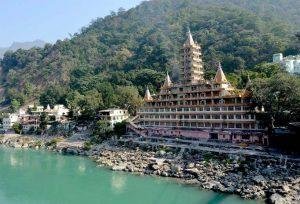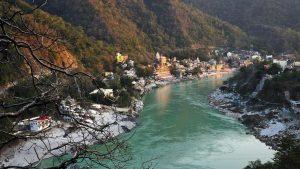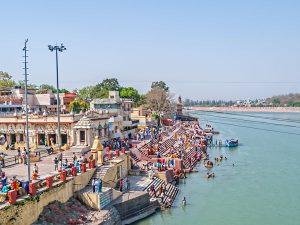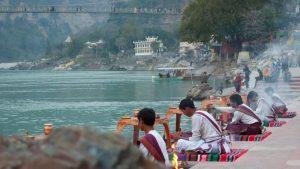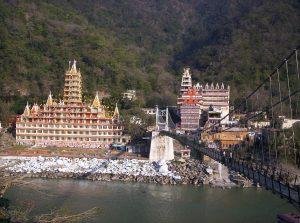Rishikesh, Dehradun, Uttarakhand
| Date built: | – |
|---|---|
| Deity: | – |
| Architectural style: | – |
| Major festivals | – |
| Locale: | – |
| District:: | Dehradun |
| Address: | – |
| Phone | – |
Rishikesh,also known as Hrishikesh is a city, municipal corporation and a tehsil in Dehradun district of the Indian state, Uttarakhand. Located in the foothills of the Himalayas in northern India, it is known as the ‘Gateway to the Garhwal Himalayas’ and ‘Yoga Capital of the World’. It lies approximately 25 km (16 mi) north of the city Haridwar and 43 km (27 mi) southeast of the state capital Dehradun. According to Census of India, 2011 Rishikesh had a population of 102,138 making it the seventh most populated city in the state of Uttarakhand. It is known as the pilgrimage town and regarded as one of the holiest places to Hindus. Hindu sages and saints have visited Rishikesh since ancient times to meditate in search of higher knowledge.In September 2015, the Union tourism minister Mahesh Sharma announced that Rishikesh and Haridwar will be the first in India to be given the title of “twin national heritage cities”. Due to the religious significance of the place, non-vegetarian food and alcohol are strictly prohibited in Rishikesh. The city hosts the annual International Yoga Festival.
Architecture
Rishikesh, a most tranquil place in northern Uttarakhand, surrounded by hills and bisected by the wide and sluggish Ganges, is often claimed as the `Yoga Capital of the World’. Back in the 1960s Rishikesh gained instant fame as the site where The Beatles came to stay with their guru, the Maharishi Mahesh Yogi. It is an excellent place to meditate and study yoga. Rishikesh is also a good starting Laxman Jhula point for treks to Himalayan pilgrimage centres such as Badrinath, Kedarnath , Gangotri, Yamnotri.It is rightly called the gateway to the Himalayan Shrines of Badrinath, Kedarnath, Gangotri and Yamunotri. 7 Story Temple Situated 24 km upstream from Haridwar, at the confluence of the Chandrabhaga and Ganga,
Rishikesh has long been a spiritual centre. It is said that the sage Raibhya Rishi did severe penance here and as a reward, God appeared to him in the form of Hrishikesh, hence the name. Rishikesh has numerous ashrams, some of which are internationally recognized as centers of philosophical studies, yoga and meditation. An international yoga week is organized here every year by Uttarakhand Tourism between 2nd and 7th of February. For the adventurous, there are opportunities for white water rafting on the Ganga. The climate here is continental type but its location in the foot hills gives it a pleasant weather throughout the year. One can visit Rishikesh any time of the year.
Legend / Local stories
Rishikesh has been a part of the legendary ‘Kedarkhand’Legends state that Lord Rama did penance here for killing Ravana, the asura king of Lanka; and Lakshmana, his younger brother, crossed the river Ganges, at a point, where the present ‘Lakshman Jhula’ bridge stands today, using a jute rope bridge.The ‘Kedarkhand’ of Skanda Purana, also mentions the existence of Indrakund at this very point. The jute-rope bridge was replaced by iron-rope suspension bridge in 1889. After it was washed away in the 1924 floods, it was replaced by the present stronger bridge. Another similar suspension bridge Ram Jhula was built in 1986 at nearby Sivananda Nagar. The sacred river Ganges flows through Rishikesh. Here the river leaves the Shivalik Hills in the Himalayas and flows into the plains of northern India. Several temples, ancient and new, are along the banks of the Ganges in Rishikesh. Shatrughna Mandir, Bharat Mandir, Lakshman Mandir are the ancient temples established by Adi Shankaracharya. Shatrughna Temple is near Ram Jhula and Lakshman Mandir is near Lakshman Jhula.
Photo Gallery
How to Reach:
Contact Details
Official Address

